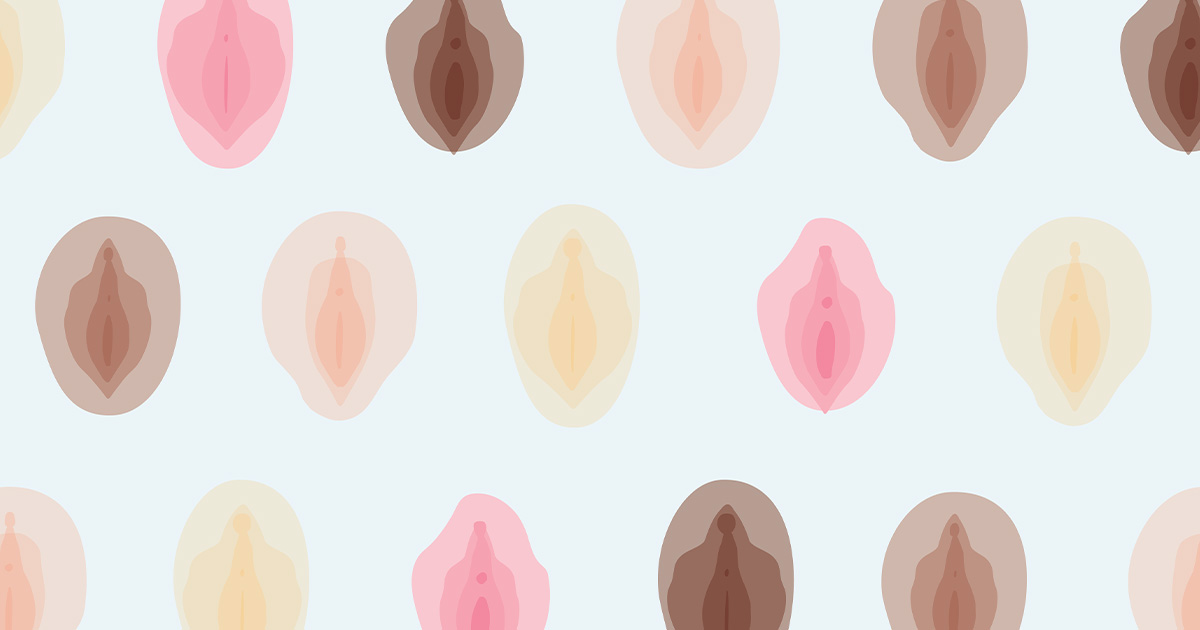
Aging, What's Up, Down There
How Your Vagina Changes As You Age
Just like the rest of our body, our vagina changes as we age. The hormonal and physical changes we experience from pregnancy through to menopause can impact the appearance and function of our vagina. Here’s a look into possible vaginal changes to expect in your 20s, 30s, 40s, and beyond and how to keep up with your vaginal health.
Your 20s and 30s
The first time many women will start to experience noticeable vaginal changes is during their childbearing years. A common question many women want to know is… “Will my vagina go back to normal after having a baby?” The good news is that the vagina is made of stretchy tissue that can both expand and retract. So, while you may experience some changes during pregnancy, they are most often temporary. Let’s explore some of those possible vaginal changes that are common after pregnancy.
You’ve likely heard the saying, “Childbirth is like running a marathon.” That’s because giving birth is an incredible physical feat! Feelings of vaginal pain, soreness, swollenness, and overall discomfort are all normal in the first few weeks as your body is still recovering. It’s recommended that you take it easy and avoid strenuous activities, including sex, for at least 6 weeks post-delivery.
The act of pushing during a vaginal delivery can also put significant pressure on your pelvic floor muscles, causing them to weaken. As a result, you may notice that it’s harder to control your bladder and you may experience leaking when you laugh or sneeze. This is a condition known as urinary incontinence. For most women, this issue is temporary and will resolve within a few weeks to a few months.
Your 20s and 30s are also a great time to learn how to do Kegel exercises. Kegel exercises, when done properly, can help strengthen the muscles of the pelvic floor and ensure they work in coordination. This is something you can continue to practice as you age.
If you’re noticing persistent pain during sex, urinary or fecal incontinence or other pain symptoms that last for more than two months after delivery, don’t hesitate to seek help. Your Axia Women’s Health OB/GYN provider can connect you to specialists within the network like a pelvic floor physical therapist or urogynecologist who has special training to treat bladder and pelvic health issues.
Another possible cause for vaginal changes during your 20s and 30s is using birth control, specifically hormonal birth control containing estrogen and progestin. The change in hormones from birth control can lead to vaginal dryness in some women. If this issue persists, lifestyle modifications like staying hydrated and limiting alcohol intake may lessen the severity of the symptoms. Various over-the-counter lubricants can also help relieve dryness.
Your 40s and Beyond
As you enter your 40s and 50s, your body starts to experience a hormonal shift as estrogen levels begin to fluctuate and gradually decline. This hormonal shift marks the start of menopause which most women tend to go through it in their 40s or 50s – reaching the end of menstruation on average at age 51, according to the North American Menopause Society.
Estrogen has a close correlation to vaginal health. Estrogen helps to produce collagen which aids in skin elasticity and plumpness. As estrogen levels decline, you may notice the vaginal tissue becomes thinner and less elastic. The vaginal canal can narrow and become shorter. This is known as vulvar vaginal atrophy (VVA). VVA can create challenges including painful sex and urinary incontinence. What’s important to note is these are all treatable conditions!
With advancements in medicine, women now have more options to help them navigate the symptoms of menopause. There are a plethora of over-the-counter options like vaginal moisturizers or lubricants to prescription options like hormone replacement therapy that can help with symptoms of vaginal dryness and pain. Other forms of therapy like pelvic floor physical therapy can help with issues like urinary incontinence and prolapse by helping to strengthen and retrain the muscles.
While the vaginal changes associated with menopause can be challenging, they don’t have to stop you from enjoying your life! With proper support, many women will find that menopause can be an incredibly rewarding and fulfilling time. Your Axia Women’s Health provider is here to help answer questions and support you as you enter this new chapter in your life! Many of our care centers have providers who specialize in the treatment of menopausal symptoms and can help you explore treatment options tailored to your needs.
Just as we change and adapt throughout our lives, so do our bodies. While certain age-related vaginal changes are inevitable, keeping up your regular gynecologic exams, practicing proper hygiene, and addressing any issues that come-up can help ensure lifelong health.
Similar Articles

February 5, 2026

November 10, 2025

May 7, 2025

























